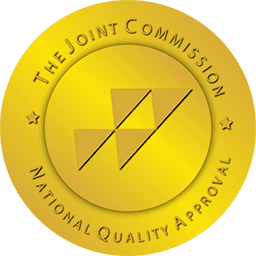- Home
- Treatment
Treatment Designed for You.
Get in touch with Absolute Awakenings today and begin your journey to long-term healing & recovery. - What We Treat
An Experience in Healing
Get in touch with Absolute Awakenings today and begin your journey to long-term healing & recovery. - About
The Rehab You've Been Looking For
Get in touch with Absolute Awakenings today and begin your journey to long-term healing & recovery. - Tour
- Resources
Don't Wait Another Day.
Get in touch with Absolute Awakenings today and begin your journey to long-term healing & recovery. - Admissions
The Rehab You've Been Looking For
Get in touch with Absolute Awakenings today and begin your journey to long-term healing & recovery. - Contact
(866) 627-0196
3000 NJ-10, Morris Plains, NJ 07950
admissions@absoluteawakenings.com
Schedule a Tour Now
Get in touch with Absolute Awakenings today and begin your journey to long-term healing & recovery.
Begin Your Journey Now
Begin Your Journey Now
- Home
- Treatment
Treatment Designed for You.
Get in touch with Absolute Awakenings today and begin your journey to long-term healing & recovery. - What We Treat
An Experience in Healing
Get in touch with Absolute Awakenings today and begin your journey to long-term healing & recovery. - About
The Rehab You've Been Looking For
Get in touch with Absolute Awakenings today and begin your journey to long-term healing & recovery. - Tour
- Resources
Don't Wait Another Day.
Get in touch with Absolute Awakenings today and begin your journey to long-term healing & recovery. - Admissions
The Rehab You've Been Looking For
Get in touch with Absolute Awakenings today and begin your journey to long-term healing & recovery. - Contact
(866) 627-0196
3000 NJ-10, Morris Plains, NJ 07950
admissions@absoluteawakenings.com
Schedule a Tour Now
Get in touch with Absolute Awakenings today and begin your journey to long-term healing & recovery.
Mental Health Rehab in New Jersey
Mental Health Treatment
- Written by Amanda Stevens, B.S.
- Reviewed By: Dr. Po-Chang Hsu, M.D., M.S.
- Updated:
- Published:
- Reading Time: 9 minutes
- Absolute Awakenings Treatment Center
- Mental Health
Get the help you need at our top-rated NJ mental health treatment program.
Mental Health Treatment New Jersey
Your Path to Wellness
Table of Contents
In the state of New Jersey, the significance of mental health can sometimes be overlooked. However, as awareness and concern for personal well-being continue to grow in the state, it becomes essential to prioritize access to mental health services.
Recognizing and using these resources is crucial in addressing the pressing mental health decline in the state.
Fortunately, the Garden State boasts many mental health facilities, each offering a distinct approach and a comprehensive range of services tailored to aid individuals in diagnosing and effectively managing their mental health conditions.
Mental Health Issues We Treat
What We Treat
Personality Disorders
Schizophrenia
ADD/ADHD
Dual-Diagnosis
Finding Mental Health Treatment in NJ
How to Find the Best Mental Health Rehab in New Jersey
New Jersey takes pride in its extensive mental health infrastructure, encompassing over 400 facilities. These include outpatient clinics, residential facilities, and hospital inpatient units. With such diverse options, individuals can readily access the necessary care in a supportive environment that suits their needs.
Mental health facilities are scattered throughout the state, spanning from vibrant cities to tranquil suburbs. In bustling urban areas like Newark, Jersey City, and Atlantic City, numerous facilities cater to various needs, thanks to their sizable populations.
In the serene rural towns of New Jersey, individuals can discover tranquil facilities that provide assistance in a peaceful environment, far removed from the hectic pace of city life. These serene settings offer solace and support, allowing individuals to embark on their journey toward mental well-being with tranquility and serenity.
If you have any specific inquiries about treatment options in New Jersey or need help choosing the right facility, please contact us. Call us today at 866-768-0528, and let our expertise and care guide you on your journey toward mental wellness.
What are the Different Types of Mental Health Treatment?
Addressing mental health requires a variety of approaches. Here are several treatment options for mental health, each with its own method for enhancing overall well-being.
Psychotherapy[1] entails discussing with a mental health expert to address your specific condition and related worries. Various forms of psychotherapy, such as therapy (CBT), dialectical behavior therapy (DBT) and interpersonal therapy (IPT), provide individuals with practical techniques and strategies to effectively manage their emotional well-being and foster personal growth.
Some mental health conditions can be effectively treated using medication. The choice of medication depends on the condition. For instance, depression may be addressed with antidepressants, while bipolar disorder might require the use of mood stabilizers.
Group therapy typically involves a gathering of people led by one or more psychologists. What makes group therapy truly beautiful is its capacity to cultivate a sense of unity and connection among the members. It reminds them they’re not alone in their struggles and life journeys.
Inpatient care refers to a treatment program that involves residing at a hospital or specialized facility. These programs are usually recommended for individuals with severe illnesses or when their mental well-being significantly hampers their daily functioning.
Support services include a variety of resources, like managing cases providing housing assistance, helping with job rehabilitation and offering peer support. These services play a role in managing health conditions, especially for individuals facing severe mental illness. By offering support and guidance, they greatly improve well-being and enhance the quality of life for those who require assistance.
How Mental Illness Impacts New Jersey Residents
Facts About Mental Health in New Jersey
Mental health poses a significant concern in New Jersey, as evident from the compelling statistics. According to the Kaiser Family Foundation[4], a concerning 27.7% of adults in the state reported experiencing symptoms of anxiety and/or depressive disorder as of early February 2023. Additionally, America’s Health Rankings revealed that depression affects 17.5% of New Jersey’s population, emphasizing the widespread prevalence of these disorders. These figures shed light on the urgent need to address mental health issues in the state.
According to a report by the National Alliance on Mental Illness[5], New Jersey is grappling with a significant shortage of mental health professionals. In fact, there are nearly 40,000 individuals residing in communities that lack adequate access to mental health experts. The situation is particularly worrisome when it comes to children’s mental health. Advocates for Children of New Jersey revealed that in 2020, approximately 168,000 children, or 10.7% of the population, experienced anxiety and depression – a notable increase from previous years when the figure stood at 7.6%.
In response to the escalating mental health crisis, the state of New Jersey has acknowledged the imperative to enhance mental health services. In pursuit of this objective, the government has allocated a substantial budget of $480.5 million[6] to fortify mental health initiatives and ensure equitable access to adequate care and support for those in need. This funding represents a significant stride towards addressing and enhancing the mental well-being of the state’s residents.
We Accept With Most Major Insurance
If you or a loved one is ready to get help but finances are holding you back, give us a call. We can work with your health insurance provider.














Stories of Hope & Healing
Hear from Our Alumni
A jewel among many local drug and alcohol rehab treatment centers in Denville, New Jersey, the care and treatment options you’ll receive at Absolute Awakenings is second to none. From not knowing if you’ll ever feel in control again to being confident in the path you’re on, we are invested in YOU every step of the way.
Find Local Treatment Options
More New Jersey Mental Health Resources
New Jersey offers a variety of mental health resources for anyone suffering from mental health or substance use issues. Here are some helpful links and organizations:
- New Jersey Department of Human Services – Division of Mental Health and Addiction Services (DMHAS): DMHAS offers a comprehensive range of mental health services, encompassing emergency care, outpatient treatment, inpatient services, and recovery support.
- New Jersey Mental Health Cares: NJMentalHealthCares is an online resource center that provides information about mental health services, treatment programs, and recovery resources.
- NAMI New Jersey: The National Alliance on Mental Illness (NAMI) has a New Jersey chapter that offers support groups, educational programs, and local resources for individuals and their families dealing with mental illness.
- Mental Health Association in New Jersey (MHANJ): MHANJ provides advocacy, education, training, and services to adults and children with mental health disorders.
- Rutgers University Behavioral Health Care (UBHC): UBHC offers comprehensive mental health and addiction services for adults, adolescents, and children.
- New Jersey Association of Mental Health and Addiction Agencies (NJAMHAA): NJAMHAA is an advocacy and resource organization dedicated to improving lives by promoting quality mental health and addiction services in New Jersey.
- 2NDFLOOR Youth Helpline: 2NDFLOOR is a free, anonymous helpline for young people in New Jersey. The youth crisis team provides 24/7 support and connects callers to mental health resources.
If you or someone you know is in crisis, call the National Suicide Prevention Lifeline at 1-800-273-TALK (1-800-273-8255) or use the Crisis Text Line by texting HOME to 741741. These services are available 24/7.
Start Your Journey
Begin Your Journey to Long-Term Healing
Make the Call. Change Your Life.
Yes, You Can Get Your Life Back...
With our trained and compassionate professionals in your corner, freedom can be yours. All it takes is you choose yourself. Choosing a better tomorrow.
Is treatment right for me?
The Benefits of Mental Health Treatment
Seeking treatment for mental health offers a range of benefits that extend well beyond just emotional well-being. This includes:
- Improved Quality of Life: Treating mental health issues can improve associated symptoms, such as sleep, appetite, energy, and mood, leading to a better quality of life.
- Enhanced Relationships: Health challenges can strain relationships. Seeking treatment helps manage symptoms, improve communication, and foster harmonious interactions.
- Increased Productivity: Mental health issues can greatly affect concentration, decision-making, and task execution. However, effective treatment can enhance productivity in professional and educational settings.
- Better Physical Health: Taking care of our psychiatric health impacts our physical well-being. It’s especially crucial for individuals with conditions such as heart disease, diabetes or chronic pain.
- Personal Growth and Self-Awareness: Addressing mental health challenges empowers personal growth and self-awareness. Effective treatment involves introspection into our thoughts, behaviors, and feelings. This process helps us discover strategies that resonate and enhance our ability to navigate life effectively.
make a change & leave addiction behind you
Find Freedom at Our New Jersey Substance Abuse Treatment Center
If you or a loved one is struggling with a mental health disorder, it is essential to seek assistance. Mental health treatment can help you manage your symptoms and find healthy ways of coping with stress. Contact us today, and let us help you find a mental health provider near you. Our team is here to offer personalized assistance and support as you embark on your journey to recovery.
Or, take a look at our treatment guides for a location near you for information about finding treatment in your area:
New Jersey Local Resource Guides
- U.S. Department of Health and Human Services. (n.d.). Psychotherapies. National Institute of Mental Health. https://www.nimh.nih.gov/health/topics/psychotherapies
- McCarty, D., Braude, L., Lyman, D. R., Dougherty, R. H., Daniels, A. S., Ghose, S. S., & Delphin-Rittmon, M. E. (2014, June 1). Substance Abuse Intensive Outpatient Programs: Assessing the Evidence. Psychiatric services (Washington, D.C.). https://www.ncbi.nlm.nih.gov/pmc/articles/PMC4152944/
- National Library of Medicine. (n.d.). Overview, Essential Concepts, and Definitions in Detoxification. Substance Abuse and Mental Health Services Administration (SAMHSA). https://www.ncbi.nlm.nih.gov/books/NBK64119/
- Published: Mar 20, 2023. (2023a, March 20). Mental health and substance use state fact sheets. KFF. https://www.kff.org/statedata/mental-health-and-substance-use-state-fact-sheets/new-jersey/
- Lee, L. (2022, August 15). National Kids Count Report: More than 10% of NJ children struggling with mental health issues. Advocates for Children of New Jersey. https://acnj.org/nj-children-struggling-with-mental-health/
- Bobby Brier, N. S. (2022, July 4). N.J. budgets $480.5m to bolster mental health services. WHYY. https://whyy.org/articles/new-jersey-budgets-over-480-million-dollars-mental-health-services/
Answers to Common Questions About Mental Health
Mental Health Treatment FAQs
Absolute Awakenings Treatment Center specializes in treating a wide range of mental health conditions including, but not limited to, depression, anxiety disorders, bipolar disorder, post-traumatic stress disorder (PTSD), and co-occurring substance use disorders. Our comprehensive treatment approach is tailored to meet the unique needs of each individual, ensuring personalized care.
We employ a variety of evidence-based therapy and treatment modalities to support our clients’ mental health recovery. These include Cognitive Behavioral Therapy (CBT), Dialectical Behavior Therapy (DBT), Motivational Interviewing (MI), Eye Movement Desensitization and Reprocessing (EMDR) for trauma, and more. Our integrated, multimodal approach ensures clients receive the care best suited to their conditions and recovery goals.
Yes, Absolute Awakenings Treatment Center provides comprehensive treatment for individuals with dual diagnosis—those who are dealing with a mental health disorder alongside substance use disorder. Our approach to dual diagnosis incorporates simultaneous treatment for both conditions, recognizing the intricate connections between mental health and substance use.
Our Primary Mental Health Treatment Program stands out due to its personalized, holistic approach to care. We focus not just on symptom relief but on addressing the underlying causes of an individual’s mental health issues. This program combines traditional psychotherapy and innovative treatment techniques with holistic services, such as wellness activities, to promote mental, physical, and emotional healing.
Understanding the pivotal role families play in the recovery process, Absolute Awakenings offers specialized support services for families. This includes family therapy sessions, educational programs about mental health and addiction, and guidance on how to create a supportive home environment. Our aim is to heal and strengthen family dynamics while providing essential support to both clients and their loved ones throughout the treatment and recovery process.
© Copyright 2024. All Rights Reserved. AATC.
- Terms & Conditions
- Privacy Policy




